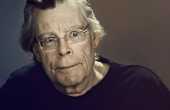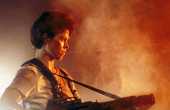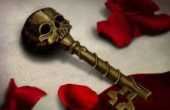Joslyn Robinson
Joslyn Robinson, MFAW. Writer/college instructor. Focus: genre fiction, transpersonal psychology, myths and fairytales. Visit at joslynrobinson.com
Contributor I
- Plebian Penman
- Lurker
- Sharp-Eyed Citizen
- Punctuator
- Article of the Month
- ?
- Articles
3 - Featured
3 - Comments
44
- Ext. Comments
9 - Processed
5 - Revisions
5
- Topics
4 - Topics Taken
0 - Notes
6
- Topics Proc.
0 - Topics Rev.
0
- Points
973 - Rank
159 - Score
450
Latest Articles
Latest Topics
Web-Videos Write this topicWeb Videos: the Good, the Bad, and the UglyAnyone can publish a video on the web. There are series that have gone one for years, the Junior and Chef Pee Pee videos, the Game Grumps. An article that compares and contrasts the good, bad and ugly of "home-made" web-video series would be fascinating. What's popular, what's good, what's awful and why? And why are they so popular?
|
games Write this topicStory or Trophies: A Gamer's DilemaWith all video games hooked into the internet and social media, what is more enjoyable: the story of the game and the personal experience of the gamer, or the pressure to achieve trophies and on-line notoriety. How is this trend impacting games and gamers?
|
arts Write this topicModern Art for the Common PersonIs art dead? Has art become an expression of personal narcissism? Or does it still feed the human soul? What delineates good art and bad art in Modern Art? Who decides? An exploration and examples of Modern Art and Artists and which, if any, have any value would be interesting and informative.
|
film Write this topicThe Evolution of the Zombie FilmA comprehensive overview of this genre would be insightful and helpful for readers interested in the genre. Questions to ponder: what was the first Zombie film? Why do Zombies continue to fascinate us and what deeper meaning does it have for us as audience and society? Where can it go next?
|
Latest Comments
| The Philosophy of Conflict in Literature | |
Thank you for the well thought out (and thought provoking) comment. Thanks again. | Working with The Shadow: A Writer's Guide |
That is a great writing exercise. It makes a character’s “flaw” very real and individual to the character, and not a stereotypical tack-on. Thanks for the idea! | Working with The Shadow: A Writer's Guide |
Yes, I was also deeply influenced be King’s writing, specifically his early work. He has a way (as he puts it) of getting “skin on skin” intimate with his characters that brings us into uncomfortable (and unforgettable) intimacy with them. | Working with The Shadow: A Writer's Guide |
I think that, as writers, it is easy (or easily glossed over) to forget that no matter how great the idea, concept, setting or plot we have for a a story, it is ultimately character that matters most. Without a “real” character, there can be no “real” story. And like “real” people, characters also have a psychology: good and bad, light and dark. Thanks for reading and the comment. | Working with The Shadow: A Writer's Guide |
Sounds like you need to stop thinking, get your character out of your head and onto the page! Put the critic in a box and the box on the shelf and let the character and story out of the closet. | Working with The Shadow: A Writer's Guide |
It is a scary and thrilling place to be when a character truly becomes a living breathing thing. This is when you have to let go and let them guide the story, and you just take dictation, and all your well laid plot plans go into the trash. | Working with The Shadow: A Writer's Guide |
Yes, the Shadow is by far one of the most complex concepts. And your observation about opposites is astute. The rational (conscious) mind likes to think of things, organize things, in terms of “opposites” Good and bad, light and dark, etc. But in the unconscious mind, there is no opposite, so that’s where the conflict arises. | Working with The Shadow: A Writer's Guide |



Hi ND,
Does literature need conflict or is it that the reader needs conflict and therefore literary conflict is a “device” of invention and not necessary. That seemed to be a main question early on and a fascinating one. But I was unclear at the end of the article if you answered that. I think you illustrated the need for conflict as part of the human condition, but I am not sure you proved this is why conflict exists ( and is necessary ) for story based literature, if that was your argument. You proved that conflict is inherent to the human existence but therefore wouldn’t it then be inherent in all story based literature about a human being? Have you read Aristotle’s Poetics?